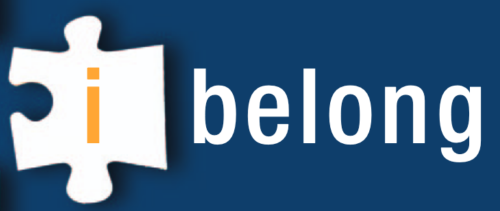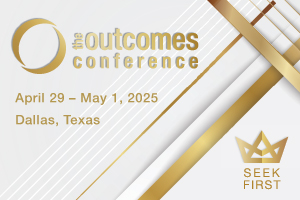
Get Ready For Your Next Donor Meeting By Justin Streiff

5 things to know ahead of your next donor meeting!
Going into a donor meeting unprepared is the surest way to secure a bad outcome. Here are some essential tips for preparing a donor meeting.
Successful major gifts fundraising inevitably requires developing comfort with—or, really, a passion for—in-person meetings with your organization’s active and prospective donors. Major donor meetings are crucial to developing the trust necessary for maintaining long-term relationships with donors—and, if your organization is like most nonprofits, major donor meetings are crucial to securing the majority of your annual revenue.
However, lack of preparation almost always results in donor meetings going painfully awry.
As any fundraiser knows, you can never guarantee a particular outcome from a meeting but, good preparation for each donor meeting will provide you with the best hope of success—and the assurance that a negative outcome was not the result of your negligence.
As you prepare for your next donor meeting, keep in mind the following 5 points:
(1.) Know your donor’s organizational history.
Any meeting with a current or past donor to your organization should be informed by gratitude for their historical support, and awareness about how and why they became involved with your work in the first place and continue their support today. Review your data and remind yourself:
- How much has this donor given and for how long? Are you prepared to thank them for being a supporter for X years?
- What was the last ask made or gift given? Was it general operations or program restricted?
- What was the last action item with the donor? Did you follow up on that last step?
- What was the last communication this donor received from you?
- Are they a former board member or volunteer? What events of yours have they attended?
If you run into trouble pulling or reviewing any of this information from your database, consider conducting a database audit to uncover deficiencies and growth opportunities with your CRM. You can read elsewhere in Philanthropy Daily about good databases—or, feel free to reach out to me by email to discuss your database and any roadblocks you may be hitting.
(2.) Know your donor’s personal history.
Donors are not ATMs. Never forget that your donor is a person. Surprisingly, the list of things that your donor cares about most in life probably looks quite similar to yours, and they will appreciate being treated accordingly. Think about what you would remember before visiting a friend:
- Did your donor recently sell her business or get a new job?
- Has she made any large gifts to other groups?
- Are her kids in college? Are there medical issues in the family?
- Are they in the news for any reason? Are there topics you should avoid completely or make sure you bring up during the meeting?
Some of this can be researched, but most of it will be learned through good donor cultivation and note taking when you meet and communicate with your donors.
If you don’t know these important details, you may be ill-prepared for your next major ask and could land yourself in a very awkward situation. For example, you don’t want begin your meeting by asking a donor who is going through a messy public divorce about a spouse, or by inquiring about the business of a donor who is currently under investigation for fraud. Beyond reviewing your database, a quick Google search the day before your meeting can alert you to many potential landmines such as these.
(3.) Know your organization.
Updating a donor on your work, or asking them to continue supporting it, requires you to be deeply versed in your organization’s past results and what you plan to accomplish this year.
This sounds obvious, but it’s worth the reminder. I could spend hours recalling countless stories where a nonprofit executive or gift officer fumbled during a meeting trying to remember basic details about their organization and its programs.
You must be well prepared to address more than history and vision, however. Most donors considering a major gift to an organization will, understandably, have some questions about what exactly they’re funding, and it is your job to have answers for them. Make sure you are informed about the administrative and financial side of your organization:
- Do you know your organization’s biggest financial needs at any given time?
- What is your annual budget? If you ran a deficit or large surplus, why did this happen?
- What do you spend in each program area? Is one program particularly pricey, be prepared to answer why.
- What is your endowment, if you have one? If its massive, why? If its tiny, why?
- How many staff do you have? What are the departments?
- How much do you spend on fundraising and administration? (This question irks me for good reason, but you still need to be prepared to answer it!)
Make sure that the staff in your organization are equipping you with the information you need to communicate with your donors. Check in with your colleagues before a meeting to make sure you are clear—and have memorized—important details about your organization. Whether you are a CEO or major gift officer, organizational details are paramount in a donor meeting.
(4.) Know your purpose and know your ask.
Do yourself and your donor a favor: don’t show up to your meeting without a clear understanding of why you’re there. Are you going in order to thank and update them on the last project they funded? Are you just trying to get to know them better? Are you making an ask?
If you are making an ask in this meeting, consider:
- Have you thought through exactly what you’re asking for, and how you’ll frame it?
- Have you developed your personal meeting plan and meeting “schedule”?
- Have you rehearsed your ask and meeting plan? This is especially critical if more than one person from your organization is involved—two bumbling, fumbling idiots is not quite the motivator for making a major gift or inspiring confidence!
- Have you anticipated—and are you prepared to address—the questions this particular donor may ask and the details he may wish to know about?
- Do you have a proposal or one-pager to leave behind? (Again, your donors are people—they have a million other things going on that day, so leave something behind to remind them of you and your group!)
- Can you answer why you need this donor’s money and involvement?
(5.) Know what you want and be prepared to pivot.
Here’s a big shocker for all of you, I am sure: a donor meeting doesn’t always go as envisioned, and sometimes they can get downright wacky.
This is why fundraisers need to be prepared for anything to happen in a meeting and have some idea how you might roll with the punches. Articulate for yourself ahead of time an ideal outcome, an acceptable outcome, and a minimum acceptable outcome so that you know what your backup ask will be should your ideal prove out of reach. (Remember: not every meeting requires an ask, and not every ask is financial!)
And when those meetings get wacky or go completely off the rails: pivot, pivot, pivot. Deal with whatever the donor throws at you and try to get the meeting back on track! The skill to pivot can only be acquired by putting yourself in as many donor meetings as possible.
If the outcome of the meeting is favorable, what should your follow-up be? What is your stewardship plan once you get what you requested?
The best-laid plans of mice and men . . . are unpredictable at best. Again, you’re dealing with humans. Nevertheless, good preparation shows respect for your donor’s time and will equip you with the confidence you need to do your job well. The most important thing, as always, is simply to build and maintain a trusting relationship with your donor, and then ask for the help that you need.
####
Justin Streiff is a Partner at American Philanthropic, a consulting firm whose mission is to strengthen civil society by improving the effectiveness of charitable foundations and nonprofit organizations. Justin provides full-service strategic consulting to nonprofits, with a particular emphasis on development department management.

Join Leaders Worldwide for the Outcome Conference Global Digital Experience!
September 1 – October 31, 2022
REGISTER TODAY




